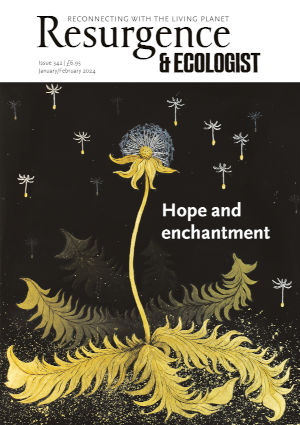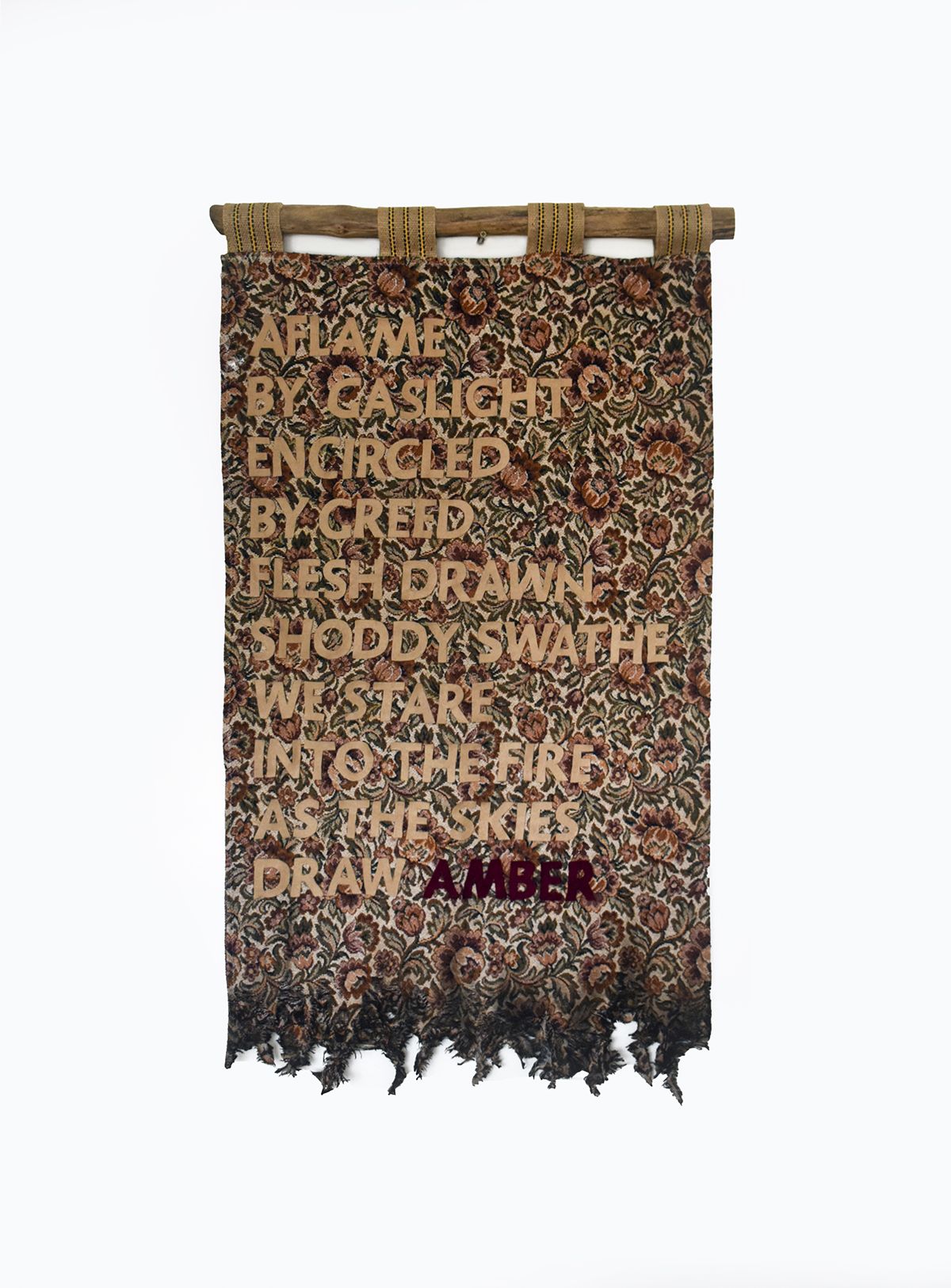To us, now secure in our winter routines, the summer of 2023 feels like a lifetime ago, especially Europe’s season of extreme heat. It is now seven months since multiple fires spread on the island of Rhodes. You might recall how this story dominated international news, with first-person accounts taking social media by storm. However, the scenes of amber flames and thick smoke billowing over the Rhodian mountains and coastline have quietly faded into distant memory. Some of us may be surprised to admit how easily we forgot these details, especially as we know all too well the importance of upholding conversations about our changing climate.
In the first instalment of Resurgence & Ecologist’s new poetry feature, Astra Papachristodoulou invites her readers to think back to the consequences of last summer’s Hellenic heatwave. Asking what to do when we are no longer absorbed by “the throttle of sirens / social media frenzy”, she asks us to turn our collective attention towards the role poetry can play in a climate-altered future.
Papachristodoulou calls herself an ecopoet, a new tradition of writers who believe that wandering lonely as a cloud doesn’t quite capture a 21stcentury relationship with the environment. Ecopoetry is more urgent, and tackles the role that humans play in protecting, and harming, our planet.
Papachristodoulou does just that in ‘Quiet Wildfires’. She is not afraid to explore the consequences of extreme heat and drought, and the harsh reality of global wildfire incidence. Through the alternative space of poetry, writing like Papachristodoulou’s challenges the status quo, unpacks speculative futures, and indirectly comes to terms with unprecedented environmental crisis. Emily Dickinson famously wrote: “Tell all the Truth but tell it slant –”
There is, however, hope in the poems. The deer that have returned “back to the earth” are memorialised through Papachristodoulou’s writing Their lives and deaths have been docu-mented, and are now part of a bigger call to action. As we read, remember; as we remember, we plan for a thriving and resilient future.
State of Emergency
Laerma, Vati, Malona
Massari, Apollona, Pefkoi
the island’s crust swells
from remains of trees & deer
they peer back at me:
be thankful, those who remain
be thankful for the sacrifice
embers rise all at once
swept away by the wind
a mountain outspent
pulsing, pulsing, pulsing
the baskania burns
the hagstone burns
unable to ward off flames
half breaths swallow heat
all grout, pepper snow
everything is concealed
footprints we leave behind
a bleached-out landscape
blotched to the bone
a foot sleepy fire harbour
the rustle of ash
the murmurs of ancient roots
the panting of a mother dama dama
the throttle of sirens
social media frenzy
emerging as embers, brisk
leaves twitch soot
a new kind of talc powder
deer swallow the skim & smoke
as their spasms dwindle
as limbs decay and return
back to the earth
surrounded by old friends
Hush, little fire
Disquiet edged kindling finds its way outwards.
Embers bolt into shape. As far as the eye can see.
Wind spreads fumes gently. Such smoke, such
crackling. Neglecting it, sorting it, breathing it.
Standing over its amber hue. Laughing little arson
enjoys the sight with caution. Laughing little arson is
my neighbour. A sudden strong rush of blood. The
fire’s tentacles reach the sea. Fast-growing surplus of
flames whizz, but does anyone listen? A flame, a
body, a flame, a poison. Wildfires happen. In the
occasional, without recognition. Over its vast folds.
The hum of fire, happens. Wide, so wide, it always
returns stronger. Winds drawn along and rough, and
along. Trees crave rebirth. Bodies below the steaming
soot moulder. This is the new sight of Summer. The
odour of collective murder. Your next “sun holiday”.
Sifting it, sorting it, neglecting it. Soil can be dense,
or sooty. Then the sun comes down, another day
spreads. More flames connect, waiting to be
quenched – in the meantime, they’re multiplying.
Once green, once curious. Leaf litter now covered in
benzene. Rhodes has made the news. Rhodes was
shown on the telly. The flames are scurrying flesh like
flies. Scars on the surface. Fire trucks and volunteers
along the edges. Residents evacuate their homes.
This long overcrowding – heat, more heat, cries of
animals and unknowing. Sifting it, sorting it,
neglecting it. The smell is simply accepted. I am not
there to interrupt. I’ve done my best. The hum of
fire, happens. Wildfires happen.
Quiet wildfires
aflame by gaslight
encircled by greed
flesh drawn shoddy swathe
we stare into the fire
as the skies draw amber








